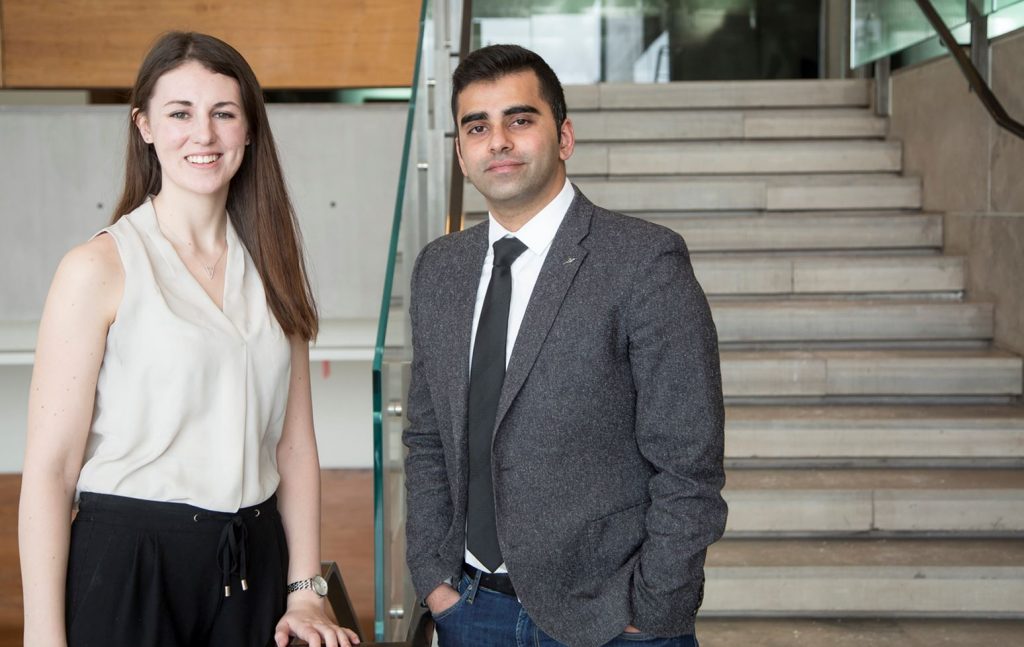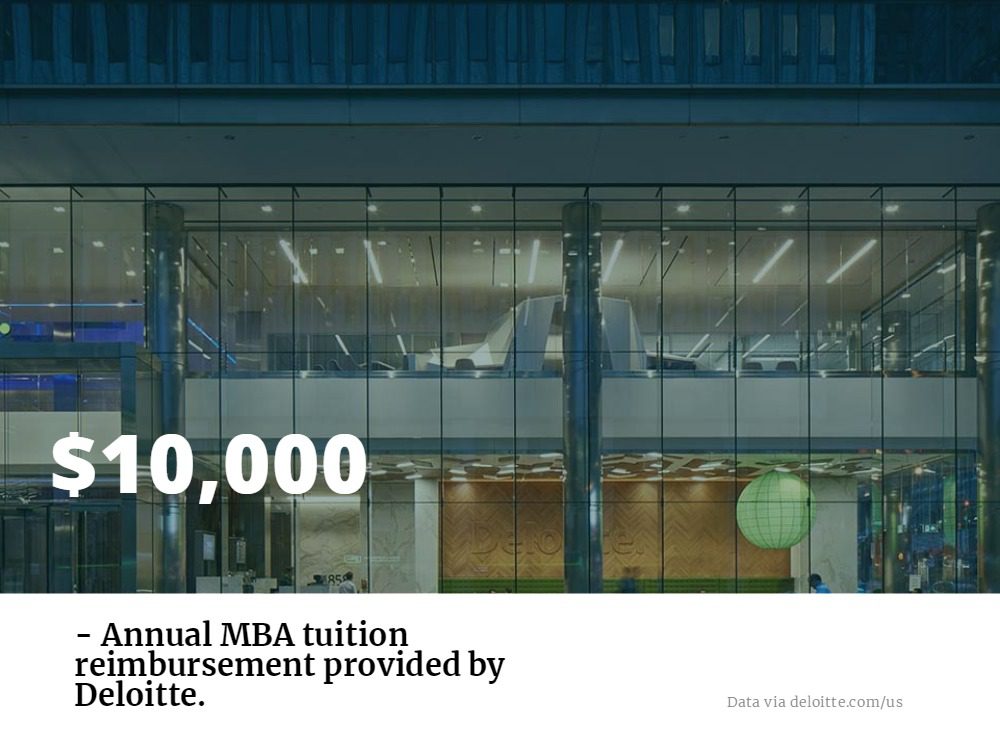Toronto News: Ivey Students Come to the UN, and More

Let’s visit some of the biggest news coming out of Toronto business schools this week.
François Neville Unpacks Why Some Minority Groups Won’t Seek Business Loans – DeGroote Communications Department
François Neville, Assistant Professor of Strategic Management at the DeGroote School of Business at McMaster University, recently investigated whether certain minority entrepreneurs become discouraged when it comes to entrepreneurial activities such as seeking capital. Neville’s has published a study in the Journal of Management Studies breaks down how years of mistreatment have led to many minority business owners not wanting to begin the process of seeking a loan.
“There is a fairly established body of research offering compelling evidence that minorities are subject to inequality in the workplace and entrepreneurship, despite numerous policy initiatives to curb this,” Neville told the school.
You can read more about Neville and the study here.
Ivey Students Participating in UN Conference – News@Ivey
Two Ivey Business School students were given the special opportunity to take part in a United Nations (UN) conference earlier this month. Emma Hogeterp, HBA/Huron Global Studies ’19; and Sanket Mehta, MBA ’18 , participating in the 2018 Winter Youth Assembly at the United Nations headquarters in New York City from Feb. 14-16.
“The purpose of the conference is to not only discuss ideas, but also how they can be applicable in your country,” said Mehta. “What works in one country might not work in another because every country has a different set of economic indicators, such as life expectancy, income levels, and population.”

Ivey Business School students Emma Hogeterp and Sanket Mehta / Photo via ivey.uwo.ca
Learn more about the Youth Assembly and the Ivey students attending the summit here.
Student Trading Competition Celebrates its 15th Anniversary at the University of Toronto’s Rotman School of Management – Rotman Media Centre
The Rotman School of Management is hosting the 15th annual Rotman International Trading Competition (RITC) from February 22 to 24 in the Rotman School’s BMO Financial Group Finance Research and Trading Lab. Teams from 52 different universities spanning the globe will participate in various activities including electronic and outcry trading cases, seminars with industry practitioners, and social events with their fellow competitors.
“Given the challenge associated with each competition case, participants build models to apply theory, process information to separate the signal from the noise, quantify uncertainty and manage risks. Teams who combine those skills with good decision making do the best over the weekend.” Prof. Tom McCurdy, the Bonham Chair in Finance and academic director of the lab and the competition, said.
You can read more about RITC here.
The Differences Between a Full-Time MBA in New York City and Toronto – MetroMBA
We stack up the best of the best when it comes to NYC and Toronto MBA programs, and where each city stands out. Not surprisingly, Toronto MBAs are more affordable, and the cost of living in the city is infinitely more reasonable, but NYC programs have more prestige and potential financial reward.
Even for those who do not pay extra for room and board, expenses for U.S. residents studying at many NYC business schools will be higher than their neighbors to the north. According to Numbeo, the cost of living in Toronto is 24 percent less than the cost of living in New York City, and rent is nearly 40 percent less.
However, the value of the individual school tends to favor New York City programs over its Toronto counterparts. NYU Stern is currently the 12th overall on the U.S. News & World Report 2018 ranking, with CBS coming even higher at 9th overall. The ranking comparison remains consistent with The Economist as well, with CBS coming in 9th (again), Stern coming in 14th. The highest ranked Canadian program in The Economist ranking—Ivey Business School—came in 59th.
Check out the rest of our comparison here.
The Differences Between a Full-Time MBA in New York City and Toronto

New York and Toronto are the largest cities in the United States and Canada, respectively. Both are major financial and cultural centers, and home to millions of hard-working students, employees, and businesses.
Both metros are also home to a number of quality business schools, each with their own prestigious full-time MBA programs. How do New York and Toronto compare as cities and as destinations for your full-time MBA studies? Let’s take a deeper dive and see.
Location
The most bustling and populous metro in the United States, New York City is is the capital of the business world. More Fortune 500 companies are headquartered here than in any other city. The Big Apple is not only home to Wall Street and the world’s largest financial institutions, but also media, marketing and advertising companies. New York is an enormous city and, unfortunately, expensive to live in, so it may not be for everyone.
When looking at metros with bustling financial sectors and companies, New York is often is the first to come to mind. But how about it neighbor to the north? Toronto is also considered one of the world’s fast-growing financial hubs. An article on the Huffington Post explains how Toronto has risen into the top 10 of the world’s most important financial centers. According to the Global Financial Centres Index from Z/Yen Group and Qatar Financial Centre, Toronto has surpassed Chicago and Boston to become the second-most important financial center in North America, and eighth in the world.
According to one unidentified New York banker quoted in the Global Financial Centres Index survey, “Toronto seems to get stronger and stronger. A number of our rivals have opened up subsidiaries there.”
New York City Full-Time MBA Programs
- Columbia Business School
- Stern School of Business – New York University
- Gabelli School of Business – Fordham University
- Zicklin School of Business – Baruch College
What stands out about these programs?
A Columbia MBA opens up countless career options and is sure to pay off in the long run. The median starting salaries for Columbia MBAs is $125,000, with 34 percent of full-time MBA of graduates being employed in the financial services industry. Students may assemble their own elective tracks, but the school also provides recommend course tracks for students interested in careers in entrepreneurship, healthcare, marketing, media, real estate, value investing, and social enterprise.
Meanwhile, Stern’s MBA curriculum gives students tons of flexibility, and allows degree seekers to choose one or two MBA specializations, NYU allows up to three specializations from 20 plus options. Stern makes sure that all students enrolled in the full-time program are ready for business school: Stern hosts a mandatory two-week orientation program in August called “Launch” as well as a special “Summer Start” program that allows students the school believes may need additional preparation to earn up to six credits before starting courses with their classmates in September.
Both Gabelli and Zicklin’s full-time programs feature cohort-based structures. Gabelli’s program features a New York immersion experience where, over the course of five days, students are exposed to a number of company visits with corporations like Deutsche Bank, Money.net, and Hewlett Packard. As an alternative to completing a major, Zicklin students may pursue a joint JD/MBA in conjunction with Brooklyn Law School or New York Law School.
Toronto’s Full-Time MBA Programs
- DeGroote School of Business – McMaster University
- Ivey Business School – Western University Canada
- Schulich School of Business – York University
- Ted Rogers School of Management – Ryerson University
What stands out about these programs?
DeGroote’s full-time MBA is a 16-month program ideal for candidates who are early in their career and want to gain advanced business knowledge in order to have more job opportunities. McMaster is one of only four Canadian universities ranked among the top 100 in the world, including by premiere publications like The Financial Times.
Ivey’s full-time program stands out because it can be completed in one year. During the year, students will learn business essentials from Canada’s only case-based MBA program. Students are able to experience real-world business scenarios through more than 300 cases a year, providing them of hands-on experience for how to best handle a variety of business scenarios.
The Sculich School of Business full-time MBA program is non-traditional due to its amorphous teaching format: The organization, pedagogy, and style of classes is determined solely by the most effective way to teach a particular course. This means that while some course instructors make extensive use of case studies, others do not. Other approaches to delivering courses include in-class presentations, role-playing exercises and visiting speakers and business leaders.
Schulich’s program, however, is on the more expensive side when it comes to Toronto metro business schools. The current full cost of the program in 2018-19 is $77,900 CAD for Canada residents, and $99,400 for international residents. While the tuition costs are actually higher than the likes of NYU Stern or the Columbia Business School full-time programs, because of the cost of living in New York City, the price is actually negligible—especially for Canadian residents.
Schulich/NYU/Columbia Full-Time MBA Costs
| York/Schulich | NYU/Stern | Columbia Business School |
|---|---|---|
| $57,000 (Canada Residents) | $69,086 USD | $71,544 USD |
| $77,900 (Full Cost, Canada Resident) | $110,562 (Full Cost, U.S. Resident) | $107,749 (Full Cost, U.S. Resident) |
Ryerson’s full-time MBA stands out thanks to its Management of Technology and Innovation (MBA-MTI) program, which provides graduates with skills in problem-solving, critical thinking, communication and collaboration. Despite it’s technical sounding name, the MBA-MTO is not a technical program. Instead students enrolled in this track graduate with the skills needed to manage within companies that are focused on tech and innovation.
Breaking Down the Numbers
Even for those who do not pay extra for room and board, expenses for U.S. residents studying at many NYC business schools will be higher than their neighbors to the north. According to Numbeo, the cost of living in Toronto is 24 percent less than the cost of living in New York City, and rent is nearly 40 percent less.
However, the value of the individual school tends to favor New York City programs over its Toronto counterparts. NYU Stern is currently the 12th overall on the U.S. News & World Report 2018 ranking, with CBS coming even higher at 9th overall. The ranking comparison remains consistent with The Economist as well, with CBS coming in 9th (again), Stern coming in 14th. The highest ranked Canadian program in The Economist ranking—Ivey Business School—came in 59th.
NYC/Toronto MBA Rankings
| School | Financial Times Ranking (2018) | The Economist Ranking (2017) |
|---|---|---|
| NYU Stern | 23 | 14 |
| Columbia Business School | 7 | 9 |
| Ivey | 90 | 59 |
| Schulich | NR | 69 |
The higher rankings and costs tend to, unsurprisingly, have a high correlation with financial output. MBA graduates from higher-ranked NYC metro schools tend to do better in terms of salary and bonuses. As previously mentioned, CBS Class of 2017 MBA grads pulled in a median annually salary of $125,000. Class of 2017 Schulich grads, in comparison, made an average median salary of around $90,000 USD.
For more information on the best full-time programs, check out our New York City and Toronto metro pages.
How to Get Your Employer to Pay For Your MBA

Earning an MBA holds tons of value in the business world—an advanced business degree can open doors that may otherwise have been closed, and boasts a high return on investment thanks to the top-level salaries that MBAs command.
Graduate school—and all of the coursework that comes with it—can be an intimidating challenge, but paying for it doesn’t have to be. Aside from scholarship, grant and fellowship opportunities at business schools across the country, more and more companies are placing a higher importance on tuition reimbursement programs, and expanding opportunities for paid MBA tuition reimbursement.
How can you get your employer to pay for your MBA studies? Let’s take a closer look.
Getting Your Employer to Pay For Your MBA
First thing’s first: You need to find out if your current employer offers tuition reimbursement to its employees. The terms of reimbursement vary depending on the company, with some corporations not offering any sort of program at all. Those that do offer some sort of compensation may do so on a course-by-course basis, or as a lump-sum reimbursement package for coursework in relevant degree plans.
“Organizations typically support MBA pursuits for two reasons,” J. Todd Rhoad, managing director of Atlanta’s BT Consulting, told USA Today. “Employee development and succession planning. In the first case, companies support the cost of MBA programs as part of their commitment to employee training and development.”
If you want to convince your employer that your education is worth investing in, you’ll need to show that earning an MBA will further your business acumen and understanding of your industry, and ultimately help your company reap those benefits.
“Usually, an employee has to already been delivering great results within the company,” Roderick Lewis, international relations director at the ISCTE Business School, University Institute of Lisbon, told Business Insider.
“If you haven’t already convinced your company, then asking them to [sponsor your education] becomes really difficult,” Lewis says.
USA Today also outlined a few checkboxes to hit when determining how valuable earning an MBA would be for your organization:
- Do current members of middle or upper management hold advanced business degrees?
- Does your company have the available revenue to invest in employee education?
- Would someone with the type of advanced training you seek bring clear advantages to the company?
If those point hold true in your situation, then start researching which programs specialize in providing the skills that your company needs. Keep in mind: You do not have to limit yourself to business schools in your metro thanks to popularity of Online MBA programs. There may have once been a stigma against online programs, but the of the matter fact is that many of the top online MBAs on U.S. News & World Report’s annual rankings also rank highly on the publication’s top campus-based graduate business programs list.
Some of these schools include:
- University of North Carolina – Chapel Hill (Kenan-Flagler)
- Indiana University – Bloomington (Kelley)
- Temple University (Fox)
- Arizona State University (Carey)
- University of Florida (Hough)
- Carnegie Mellon University (Tepper)
- University of Texas – Dallas
Once you’ve found the right program, you’ll want to craft a brief proposal for your employer. In it, you’ll want to mention how you fit the company’s tuition reimbursement policy, and list the advantages that continuing your education can bring you and your company. Don’t shy away from providing data on how much assistance you may need and how this investment will pay off for everyone, while also ensuring your employer that you’ll remain committed to the company during your degree program, or won’t jump ship after earning your degree.
“A proposal should address the benefit to the company,” Rhoad says, “(including) areas where the company could improve and how you will help them, a review of the courses to be taken and how they will provide knowledge that can help improve the company’s performance.”
Companies That Provide MBA Tuition Reimbursement
Investopedia recently compiled a list of companies have stated that they place a high value on their tuition assistance benefits, and provide tuition reimbursement for the educational costs of an MBA.
According to Investopedia, consulting companies lead the market in tuition reimbursement programs for MBA courses. These firms also pay the highest salaries for MBA alumni. Deloitte has the most robust tuition reimbursement plan, providing employees with up to $10,000 per year in MBA reimbursements. The firm requires two years of work with the company and a commitment to work for the company after graduation in order to receive the tuition assistance benefit.

Financial institutions and banks also place a high value on employees with MBAs, and provide tuition assistance. One example is Bank of America, which provides employees with annual tuition assistance of up to $5,250 for advanced degree coursework. Wells Fargo also has a track record of paying for MBAs, doling out up to $5,000 annually for tuition expenses.
The booming tech sector is also hiring MBAs left and right, with some firms developing their MBA talent in house by offering to pay MBA tuition expenses. Apple tops the list of tech companies offering tuition assistance, providing reimbursement of up to $5,000 annually. MBA degrees are even more coveted in the the specialty defense technology sector, as Raytheon, one of the top defense technology companies in the world, offering to pay up to 100 percent of employees’ college tuition for graduate school.
Other leading companies offering tuition reimbursement to employees include:
- Chevron: A market leader in the energy sector, Chevron offers offers tuition reimbursement of up to 75 percent for its employees.
Ford: Ford’s education tuition assistance program provides employees with tuition reimbursement of up to $5,000 annually for an MBA. - Procter & Gamble: This firm has one of the leading tuition reimbursement benefits in the consumer goods industry, providing reimbursement for up to 80 percent of educational costs with a limit at $40,000.
- AT&T: This telecom giant provides employees with up to $5,250 annually for tuition assistance, for a maximum reimbursement of up to $25,000 for graduate school courses.
School v. School: NYU Stern or Columbia Business School?

What happens when you pit two of the New York metro’s top business school’s against each other in a head-to-head duel of MBA might? It’s a school vs. school showdown, as we compare Columbia Business School to the Stern School of Business. Let’s take a deeper dive! Continue reading…
Toronto News: DeGroote Launches New Fellowship, Rotman Makes New Hire, and More

Let’s visit some of the biggest news coming out of Toronto business schools this week.
EMBA Physicians Invited to Enroll in HLA Fellowship Program – DeGroote Communications Department
According to a press release from the DeGroote School of Business at McMaster University, the Michael G. DeGroote Health Leadership Academy (HLA) is launching a new fellowship program for physicians who enroll in the Executive MBA in Digital Transformation (EMBA) at the DeGroote School of Business. Called the HLA Physician Fellowship Program, five fellows will be selected for the inaugural year of the program, which starts in September 2018.
The EMBA in Digital Transformation is a 13-month program that allows candidates to work while pursuing their degree. It features an evolving interdisciplinary curriculum includes customized, integrated cases developed around new and emerging trends in business and technology.
“The HLA strives to attain a transformative impact on global healthcare by nurturing a community of future leaders,” Del Harnish, Co-Director of the HLA, said. “This fellowship program helps develop these leaders by providing a broad perspective of the intersections of health and business knowledge.”
You can read more about the new fellowship here.
Rotman School Strengthens Business Design and Innovation with New Appointment – Rotman Media Centre
The Rotman School of Management announced an exciting new faculty hire via their Media Centre: Angèle Beausoleil is joining the school’s faculty as an assistant professor of Business Design and Innovation. In addition to developing and delivering new courses, she will be collaborating with Rotman DesignWorks, the school’s Business Design Centre on industry projects to help advance innovation practices at the school.
You can read more about Professor Beausoleil here.
Schulich School of Business Wins 2018 MBA Games – Schulich Media Centre
Last month, a team of MBAs from the Schulich School of Business at York University bested teams from 16 other Canadian graduate business schools to win the 2018 MBA Games. The victory was Schulich’s seventh MBA Games win in 16 years.
“This was our year to win the MBA Games,” said Catherine Sim, Team Captain, who expects to graduate with a Schulich MBA degree later this year. “It feels great to bring the Queen’s Cup back to where it belongs.”
You can read more about the team’s triumph here.
Vincent Kompany: International Footballer and MBA All-Star

When it comes to soccer (err, football) Manchester City captain Vincent Kompany is one of the most widely known centre backs in the world. The Belgian international joined City way back in 2006 and went on to lead his club to victory, helping bring the team its first Premier League title in over four decades in 2012, and then again in 2014.
